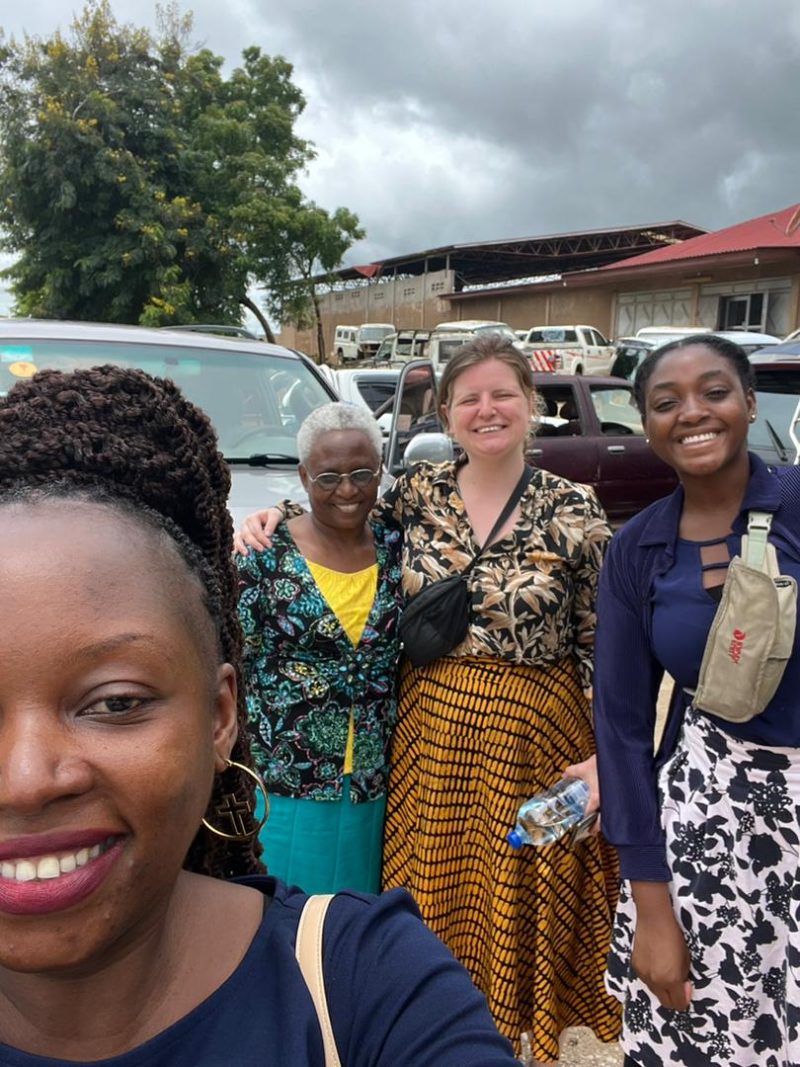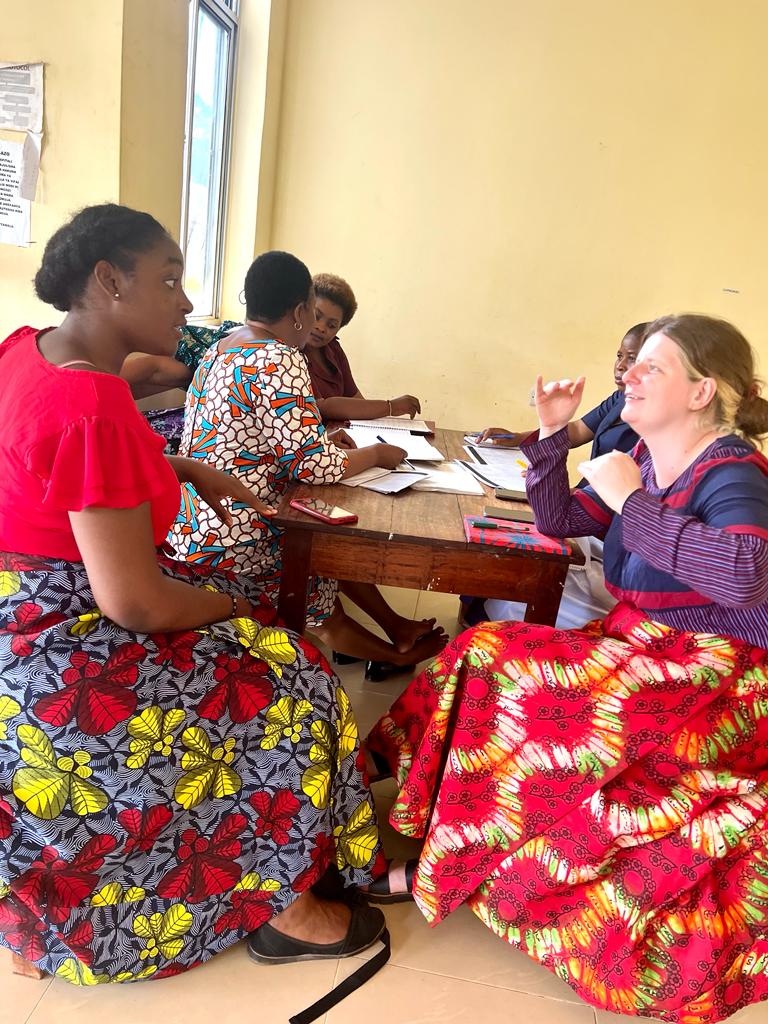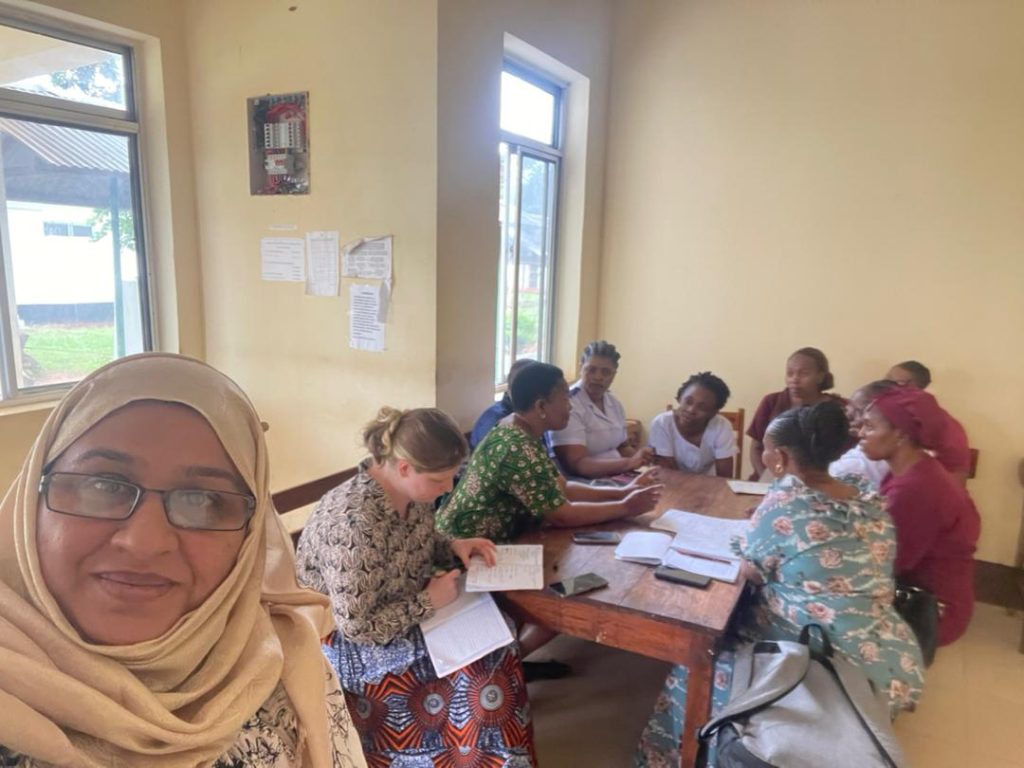
ALERT: Perspectives from a Global Health masterstudent
My name is Alice Stockart and as a newly graduated medical doctor from Belgium, I decided to complete my formation with a master’s in global health. Last semester, I had the incredible opportunity to conduct my master’s thesis within the ALERT project.
I first learned about the ALERT project in a Swedish classroom. I was listening to the very first lecture of the year on qualitative research taught by Helle Mölsted Alvesson. The methodology’s potential for subtle and complex interpretation immediately drew me in. A quick Google search later, I had found out about ALERT, and I was set. I wanted to be part of this.
After discussing my clinical interests in obstetrics and labour monitoring, Helle introduced me to the topic of partograph use by maternity care providers. Partographs are a monitoring tool used during labour to assess labour progress as well as maternal and foetal wellbeing. While conducting and analysing interviews on health care providers’ use of data in rural Tanzania, my soon-to-be co-supervisor, Regine Unkels, came to the realization that discourses surrounding the use of partographs far exceeded their initial objectives. She suspected that the way nurses, midwives, and doctors talked about it may reveal a lot, not only on how the partograph was used in practice but also on how providers perceived their own abilities and medical professionalism. I analysed interviews and observations made in the field through the lens of thematic analysis, with the aim of further understand how maternity care providers ascribed meaning to the use of partographs in the low-resourced hospitals of southern Tanzania.
I found that claims of adherence to standard monitoring practices helped providers assert their professionnalism in the context of harsh clinical realities, while excessive reliance on the partograph for decision making seemed to point toward a lack of interpretative and clinical abilities. Furthermore, while the use of partograph helped maternity care providers feel empowered, it was also used to justify abusive practices toward pregnant women, and standardization of the labor processes led to dismissive attitudes towards their pain and autonomy. Completeness of recorded parameters was often prioritized over their accuracy, and the narratives created by the partograph post-labor were more aligned with providers’ needs rather than reflecting the reality of the ward.
I got the opportunity to travel to Tanzania and visit the hospitals with the research team. I received a great deal of support during the entire thesis process, not just from my two supervisors, Helle and Regine, but also from the whole ALERT team. Whether in Tanzania or back in Sweden, I always felt included and appreciated. Most importantly of all, I felt inspired by these women: researchers, nurses, doctors, sociologists, anthropologists, etc. So accomplished, so brilliant and charismatic, yet humble and down to earth. This kind of leadership, characterized by empathy and kindness, showed me a side of academia I had never encountered before. This is one of the most precious lessons I will take away from this experience.
However, this story does not begin in Tanzania, nor does it start in Sweden. As previously mentioned, I am first and foremost a medical doctor, and was a medical student not too long ago. In March 2022, I spent a month as a medical intern in the Democratic Republic of the Congo, where I experienced the daily routines and struggles of a public hospital. There, I gained incredibly valuable clinical knowledge but also experienced a great sense of powerlessness and overwhelm when witnessing the enormous challenges faced by providers and recipients on a daily basis. I was often left with the unshakeable feeling of infinite inertia—the sensation that the unfortunate and tragic realities I was witnessing would never change.
I recognized this heavy feeling once again in one of the regional hospitals in Tanzania we visited. This time, however, was very different. What had felt inevitable and unsurmountable was now part of a narrative I could understand. A narrative full of great challenges and obstacles, but nonetheless one that could be altered, stirred toward a new direction. And this time, I was not alone. I observed the rigor and methodological approach of the local researchers and mentors. Tackling issues one by one, striving toward improvement. This lesson in hope and resilience is another one I will forever be grateful for.
Reader, thank you for letting me share my experience with you. The master’s thesis might be over, but the journey continues, and I hope to soon be able to publish my findings and contribute to the global understanding of partograph use, and help improve intrapartum care.



0 comments